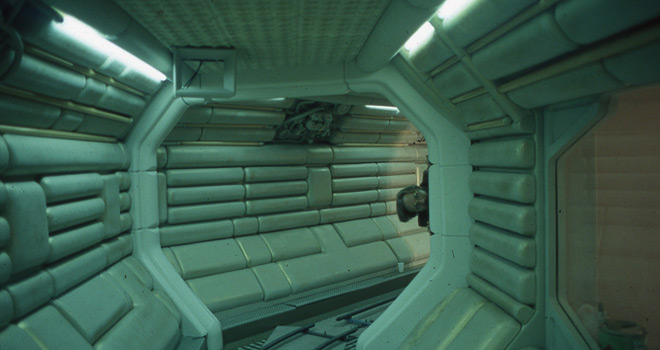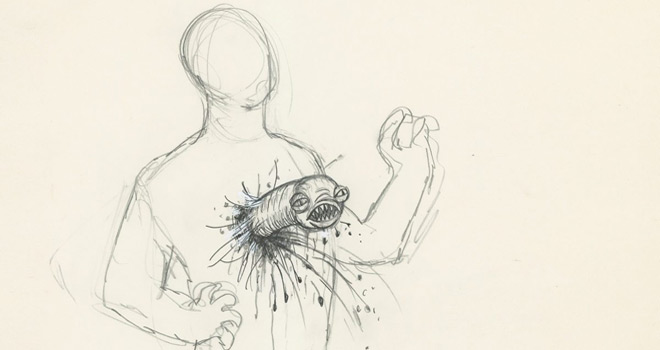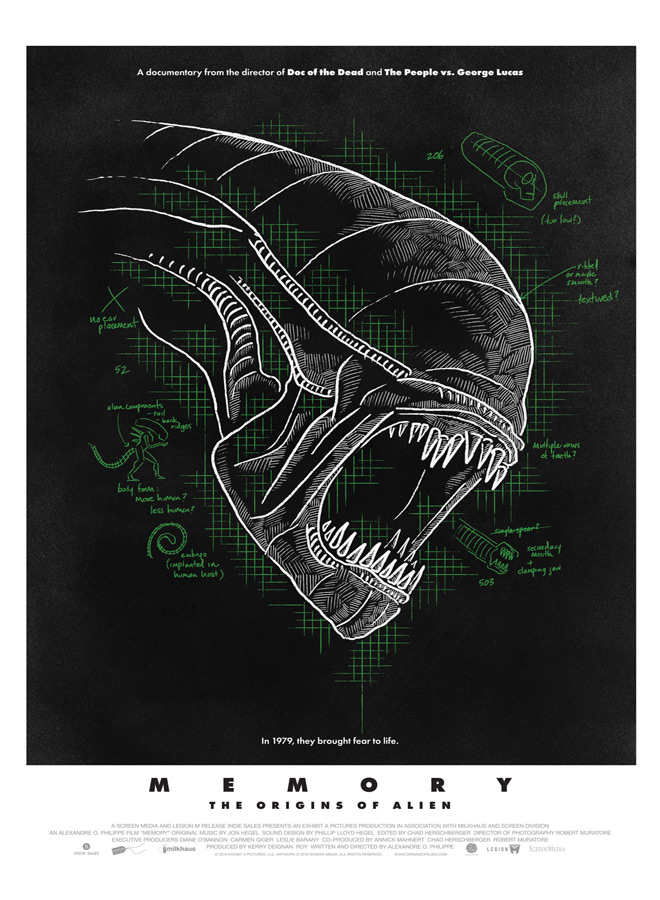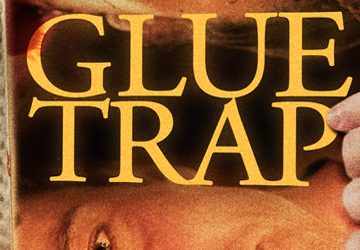The Alien franchise will be turning 40-years-old soon, and it has had a lot of ups and downs. There was 2012’s Prometheus which answered questions that were probably better left as mysteries, the 2013 video game Aliens: Colonial Marines which slung disappointment in its wake, and 2017’s Alien: Covenant which received a critical drubbing.
Now to bring more light to the history of it all, on Friday, October 4th, Screen Media will release the new Documentary Memory: The Origins of Alien. Written and directed by Alexandre O. Philippe (78/52: Hitchcock’s Shower Scene 2017), it aims to unearth the tale behind the creation of the original Alien film from 1979. It will even include previously unseen notes and pictures from original Scriptwriter Dan O’Bannon and Xenomorph Designer H.R Giger. Plus, interviews with cast members Veronica Cartwright, Tom Skerritt, Producer Ronald Shusett, and more.
These factors in mind, how good is the Documentary, and who will it suit best? Alien aficionados will obviously be interested. Though they also likely own the previously released Alien Quadrilogy/Anthology DVD and Blu-ray boxsets, which contained a feature-length making-of documentary for each film. The one for Alien even spoke to people who were not able to appear for Memory, like Director Ridley Scott, Lead Actress Sigourney Weaver, and O’Bannon himself.

O’Bannon passed away in 2009, so that cannot be helped. Yet that aside, the documentary still went in-depth on the film’s development, script changes, behind-the-scenes beefs, and its most famous scenes like the ‘Chestburster’ sequence. So, the key question for Memory: The Origin of Alien is, after 40 years’ worth of introspection, examination, and investigation, is there any ground left in the original Alien film for it to uncover?
It certainly has style on its side. There are not many documentaries that would start off with the ancient Greek Furies on a spaceship – not unless they are on the History Channel anyway. Then the history of its development goes way back to O’Bannon’s life story, rather than just the script and how the crew came together. It is more how the basic idea of Alien grew from an evolving story idea that had influences from 50’s B-movies and EC horror comics. Seeing that in text or hearing people talk about it is one thing, but Memory: The Origin of Alien gets to show it. The film is upfront with Alien’s influences because O’Bannon and others were too.
O’Bannon has been quoted, here and elsewhere, as saying “I didn’t steal from anybody, I stole from everybody.” The film even shows a document listing its sources, talking about it being “a type of plagiarism.” Memory focuses on a few in particular, like 1958’s IT! The Terror from Beyond Space and 1966’s Queen of Blood. There is also a talk on its literary connection to H.P Lovecraft’s At the Mountains of Madness, and how O’Bannon and John Carpenter drew on the author’s ‘fear of the unknown’ style.
The film covers many angles with its interviews. O’Bannon’s wife Diane describes his upbringing, personality, influences, and more. Clarke Wolfe and Ben Mankiewicz and others talk about the film’s influences and symbolism. That is not to mention Shusett and Cartwright, who give their direct account of the film’s script-writing and shooting. It sounds all relatively straightforward, but then it throws in a few curveballs.

For example, Carl Zimmer talks about the behavior of certain parasitic wasps and how they can manipulate their hosts – complete with nature footage. Some people reading that back may think that is what inspired the ‘Chestburster,’ and Zimmer does say Scott brought it up often. In truth, they are just many different pieces of a jigsaw puzzle of sources, and they are not even the quirkiest examples.
The same goes for Giger’s contributions to Alien. It manages to produce an extra angle that other documentaries, or at least the Quadrilogy one, did not cover in Giger’s influences. Giger himself has since passed on, so like O’Bannon, his only direct words on the subject come from older stock footage. Yet Memory: The Origins of Alien does it with panache, showing these and other older interviews on the fuzzy monitors from its spaceship set.
It is not until the second half that Memory: The Origins of Alien touches upon the actual making of Alien as a film. It gets more grounded and technical, with how certain scenes were shot, certain props made, etc. Though it never loses that leaning towards artistic interpretation – Francis Bacon, Clytemnestra, etc. There is also some socio-political commentary that makes sense in how Alien may have found favor where 1982’s The Thing did not.
Still, some fans may prefer the grounded talk to the philosophical discussion. O’Bannon and Giger all but disappear once the second half starts. It is a bit disappointing as, though much of that was covered in Quadrilogy, it would have been nice to have other sources expanding upon it. That does not stop it being interesting. What Philippe and company have put together remains strong and thought-provoking. It just means it works more as a companion piece to Quadrilogy than replacing it.
So, what does it all mean in the end? Ultimately, Memory: The Origins of Alien might suit Alien fans, film fans and the more artistic/philosophically inclined for a first watch to examine and pick apart. The film provides plenty of food for thought alongside new finds and would still be interesting for people going into it blind. It is just that they should catch Quadrilogy first to get the full picture, because that film covers the whats and hows behind Alien while Memory: The Origins of Alien covers the whys. Thus, for these reasons, Cryptic Rock gives this film 4 out of 5 stars.






No comment